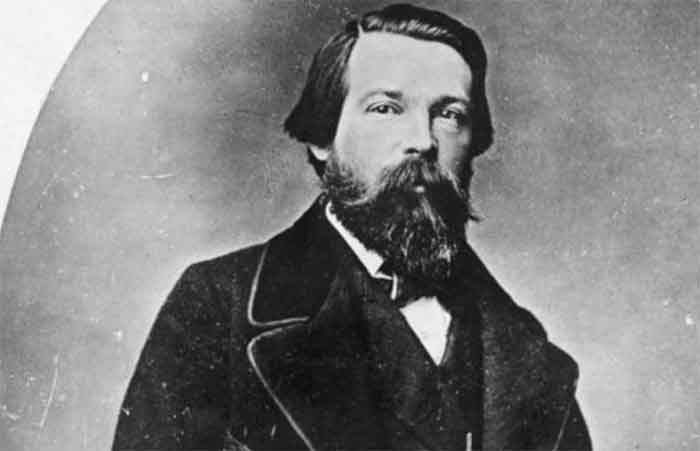A ghost goes through Europe: The ghost of communism

This year it is 200 years since Friedrich Engels was born in the German town of Wuppertal in the Rhine district. I have visited the Wuppertal on that occasion and here are a few political reflections.
Engels is one of the most significant personalities of the 19th Century, who has influenced history up to the present day. Engels` 200th birthday is celebrated in the city of Wuppertal, see www.engels2020.de.
“A ghost goes through Europe – the ghost of communism”. This is how the Communist Manifesto of 1848, written by Friedrich Engels and Karl Marx, begins, and it ends with the battle cry: “Proletarians in all countries unite.”
In several other writings, Engels dealt with the economic consequences and disparities of industrialization in the 19th Century. Together with Karl Marx, he formulated a critique and theory of capitalism which is still active today.
Engels was a sharp critic of poverty and exploitation, and reading his writings, which were at the same time political pamphlets, can be a good inspiration for today’s humanists and socialists.
Let’s just hear what Engels wrote about housing shortages and the usury of landlords. Capitalism creates housing shortages, and crowds the workers in the cities, where even the “most infamous pigsty gets tenants”, as Engels writes in his articles on the housing question:
“In such a society the housing shortage is no accident; it is a necessary institution and it can be abolished together with all its effects on health, etc., only if the whole social order from which it springs is fundamentally refashioned. That, however, bourgeois socialism dare not know. It dare not explain the housing shortage from the existing conditions. And therefore nothing remains for it but to explain the housing shortage by means of moral phrases as the result of the baseness of human beings, as the result of original sin, so to speak.”
Engels describes here social problems that we still see unfolding. There has been no fundamental change of the social system of his time, except that today it has become global. The grotesque inequalities and bottomless poverty in 19th-century Europe, we find to this day in the slums of Africa, India and Brazil. In today’s metropolitan centers, there is systematic housing and land speculation with grotesquely high housing prices. Appeals to politicians and the property-owning classes to do something are pervasive, but fundamental change requires an organized working class with political power to break with the power of profit over the housing sector.
In his epoch-making book from 1845 on the situation of the working class in England, Engels wrote about living conditions that can still be found in the global south today:
“Every great city has one or more slums, where the working-class is crowded together. True, poverty often dwells in hidden alleys close to the palaces of the rich; but, in general, a separate territory has been assigned to it, where, removed from the sight of the happier classes, it may struggle along as it can.”
“I once went into Manchester with such a bourgeois, and spoke to him of the bad, unwholesome method of building, the frightful condition of the working-peoples quarters, and asserted that I had never seen so ill-built a city. The man listened quietly to the end, and said at the corner where we parted: ”And yet there is a great deal of money made here, good morning, sir.” It is utterly indifferent to the English bourgeois whether his working-men starve or not, if only he makes money.”
So get started reading Engels here in the 200th year of his birth. And visit the City of Wuppertal, where you can also take a trip with their famous suspension railway.
Sources:
Friedrich Engels
Condition of the Working Class in England, 1845,
https://www.marxists.org/archive/marx/works/download/pdf/
condition-working-class-england.pdf
Frederick Engels: The Housing Question, 1872-73,
https://www.marxists.org/archive/marx/works/download/Marx_The_Housing_Question.pdf
John Graversgaard is a political activist from Denmark
SIGN UP FOR COUNTERCURRENTS DAILY NEWSLETTER














































